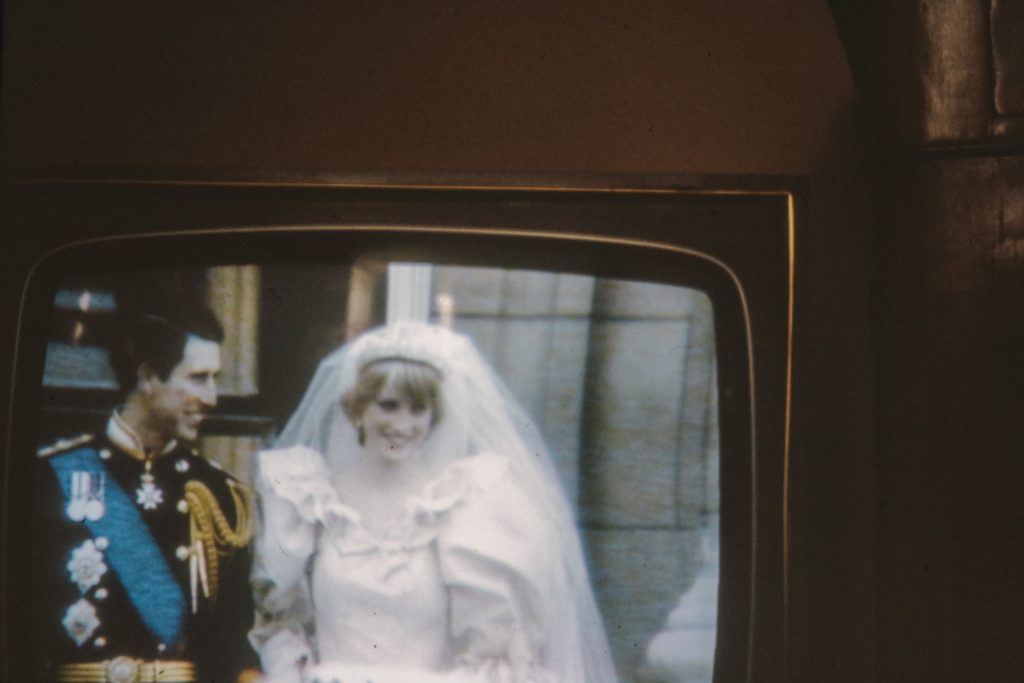
The public’s obsession with Diana is as exploitative as the paparazzi who killed her.
The final shot of series four of Netflix’s The Crown shows Emma Corrin as Princess Diana, a slow zoom bringing her wide, tear-filled eyes into prominence.
It’s a haunting image, unpleasant to watch. In many ways, the whole series is. And yet we just can’t stop ourselves.
Dianamania is back with a vengeance. Diana: The Musical was just released on Netflix (to a critical battering of possibly unrivalled ferocity), Spencer has recently hit the big screen, Rowing Blazers are re-releasing ‘iconic’ Diana fashion moments. Maybe it’s the upcoming 25th anniversary of her passing – is 25 years long enough that any semblance of respect goes out the window? It would seem so. With each year that passes, the obsession seems more and more exploitative.
The internet was, on the whole, immensely displeased by the casting of Kristin Stewart in Spencer. It was a high-profile actress cast in what was always going to be a high-profile role, so opinions were always going to roll in. There was something different about this. There was a sense of ownership among the vocal masses on Twitter. “Our Di,” they cried, “Kristen Stewart could never do her justice.”
The public have always felt a certain ownership over Diana. “The People’s Princess” she was dubbed – because she was felt to be on our side, yes, but also because she seemed to be ours. But we never had the right to her. Not when she was a member of the royals, not when she divorced, not now she has been dead more than twenty years.
Everyone wants to feel as if they knew her. That they understood her. Those who weren’t even alive when she passed claim to have found their kindred spirit, their idol. Desperate for titbits of information that have yet been unrevealed, they consume every depiction uncritically, taken at face value. Fictional conversations in The Crown are perceived as fact, unconfirmed rumours spun to become part of the complex web that makes up the public’s shallow understanding of a complex woman.
No matter how many Channel 5 documentaries we consume, we will never know the full story, and that is alright. We did not know Diana, and that is alright. But viewing her as either a beleaguered and agency-stripped victim, or a flawless saint, is not alright. Turning her into a sanctified icon, a spearhead for presenting frustrations with the monarchy, a figure that best fits one’s own worldview, is unproductive and exploitative. Surely, the truth lies somewhere between the two? A truth that the public have no right to.
Diana is never remembered on her own terms – always through the tales of others. Those close to her, those who observed her, those who watched through screens and lenses. Recently came the news that Martin Bashir’s famous (and constantly shared across social media) interview was conducted on unethical terms. Even the words that are constantly repeated as “Diana’s own” were taken from her in a moment of vulnerability. The bits and pieces she shared of herself are warped and twisted to fit an image, an idea, that the public wants to remember.
Diana despised the paparazzi. And yet a legion of Gen Zs have Pinterest boards full of candid images, taken without her permission. “Athleisurewear goals”, “Sunday fit inspo”, they caption the images in their Instagram stories, while consuming a ‘For You’ page flooded with TikToks dedicated to sourcing Diana-inspired Harvard sweatshirts, the perfect vintage trainers. The irony will never be lost that those who claim to be fans of Diana relentlessly share the video of her pleading with the paparazzi for a few moments of peace with her sons. “What a good mother!”, the video is captioned, always with the right hashtags to achieve maximum reach.
There’s a new biography everywhere you look, each promising the one, true story. Multiple clothing retailers have re-released designs, marketed with Diana’s image, in honour of the 25th anniversary of her death. Her memory is relentlessly commercialised, year after year. It’s time to let her rest in peace, at long last.
Spencer will undoubtedly be a box office success. I await the new ‘Diana project’ announcement; not with bated breath, but grim resignation.
– Madelaine Gray
